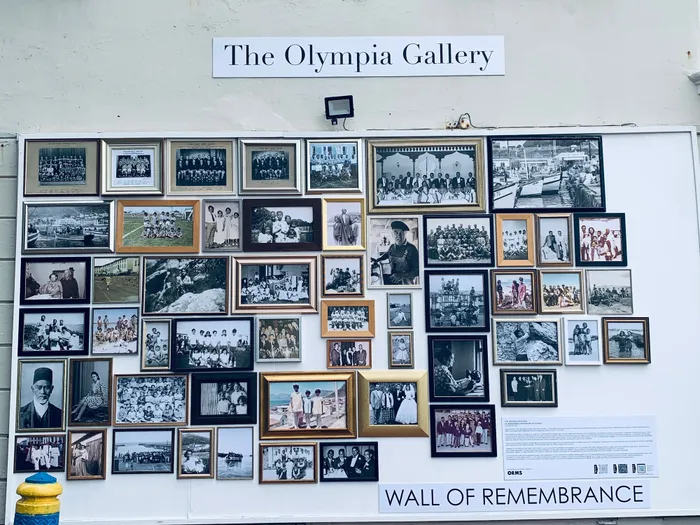Exploring Kalk Bay’s indigenous fishing roots

Photos and interactive elements highlight Kalk Bay’s indigenous fishing history and community connections at The Sea is in Our Blood exhibition.
A new outdoor exhibition, The Sea is in Our Blood, is now on display at the Olympia Gallery in Kalk Bay.
The exhibition focuses on the erased histories of Kalk Bay’s indigenous fishing community and their connections to the ocean, says its curator, Traci Kwaai, a ninth-generation fisher descendant.
“The exhibition is about remembering the indigenous fishing community, because Kalk Bay has changed over time and become very gentrified. Our culture, values, and heritage are being erased quite quickly,” Ms Kwaai said, adding that it explored False Bay’s complex history and referenced the indigenous !Xam and Khoi Khoi tribes, as well as the enslaved seafaring peoples from Indonesia, Bengal, and East Africa under Dutch and British colonial rule.
"It also highlights the Filipino influence and the ongoing struggles of small-scale fishers against the legacies of apartheid, blue economic expansion, and conservation practices," she said.
According to Ms Kwaai, the exhibition has been in development for over a year.
The photographs displayed were chosen to represent as many families and aspects of community life as possible, she said, adding that she had purposefully selected images of the Sassman, Coussins, Fortune, Gomez and the Ferreira families.
"I wanted everybody to be represented. The pictures tell a story of a community that played sport, with netball pictures, the 1930s Swim Club, Excelsior Rugby Club, Marines Rugby Club, and softball teams all included," she said.
"I want people who have ancestry in Kalk Bay, and were forcibly removed, to see their families up there and know they belong to the land. They don’t own the land, but they belong to it.“
The exhibition includes augmented and virtual reality aspects, which are also a part of Ms Kwaai's NGO, the Fisher Child Project, aimed at reconnecting local youth with their heritage and the ocean through snorkeling and free diving.
“The exhibition features QR tags which will allow visitors to access historical photos and stories of old Kalk Bay," she said.
The Olympia Gallery was founded by resident Keri Muller, who was involved in every aspect of its development, from fundraising and constructing the display board to curating and installing the exhibits.
"I love the idea of transforming a derelict old wall into something beautiful, and that it also brings more than just art to the public,” Ms Muller said, adding that Ms Kwaai’s work had been chosen as the next installation because she had been gathering photographs and stories for some time, and the exhibition provided the perfect opportunity to display them.
"It just worked out really well to have her be the next installation and use it as a kick-off for her QR tags, which feature spoken stories - a fantastic addition," Ms Muller said.
The exhibition is set to remain on display for a year.
"I want everyone to be represented on that wall," Ms Kwaai said. "The pictures tell a story of community, connection, and belonging."
Related Topics: